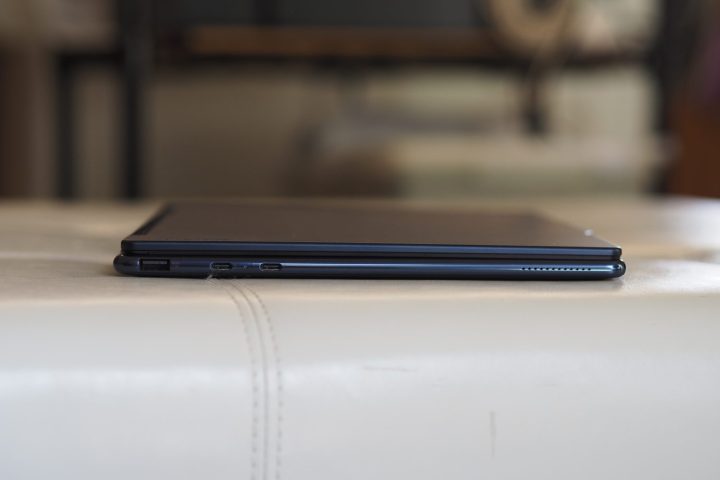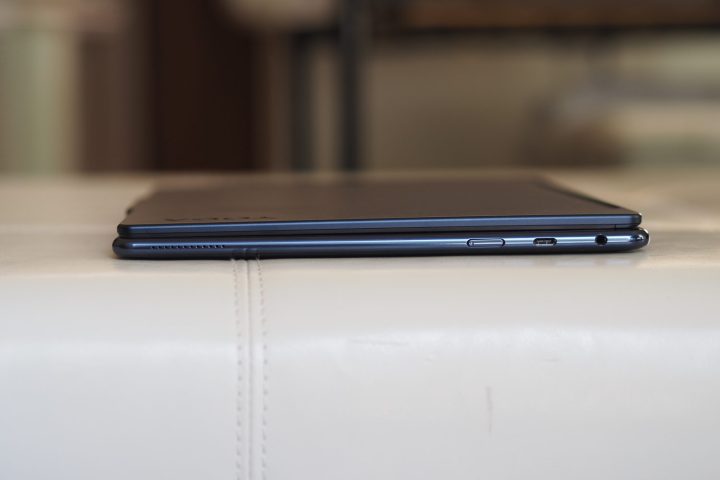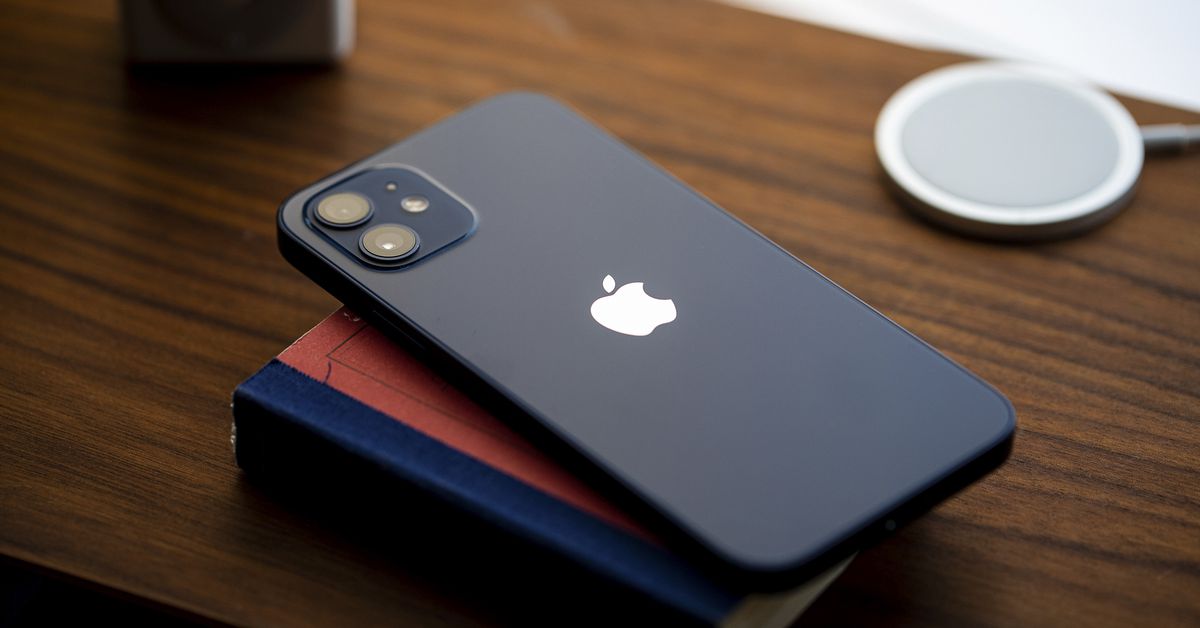Lenovo Yoga 9i Gen 9 review: pure class
The Lenovo Yoga 9i Gen 9 is a solid update and one of the best 14-inch convertible 2-in-1s. Only below-average battery life holds it back.
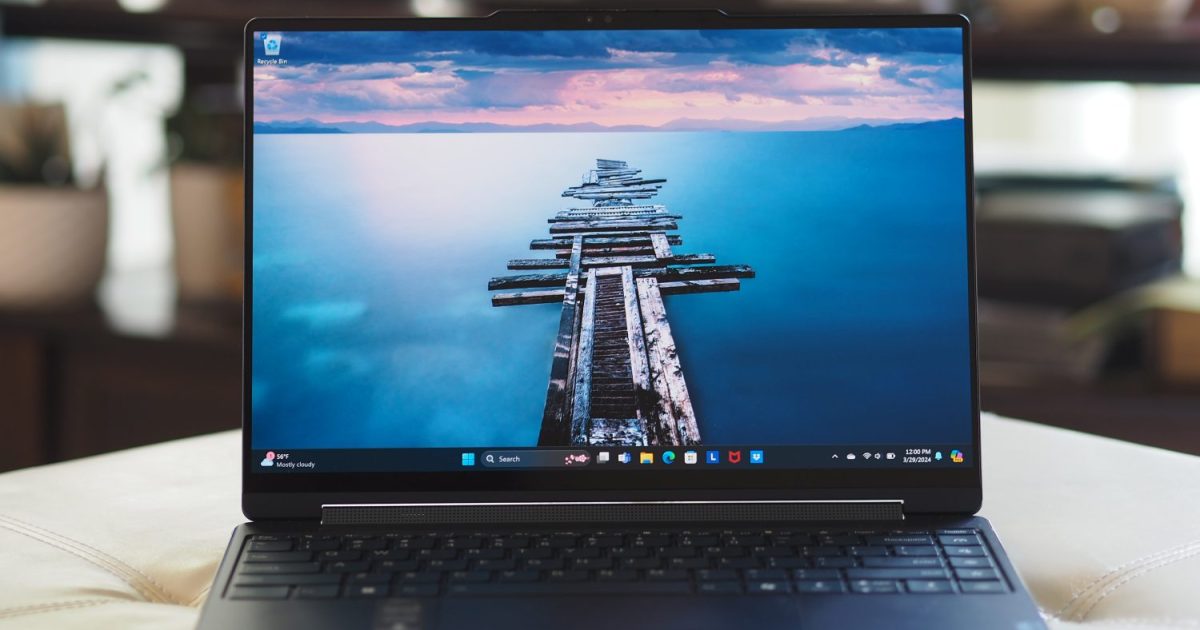
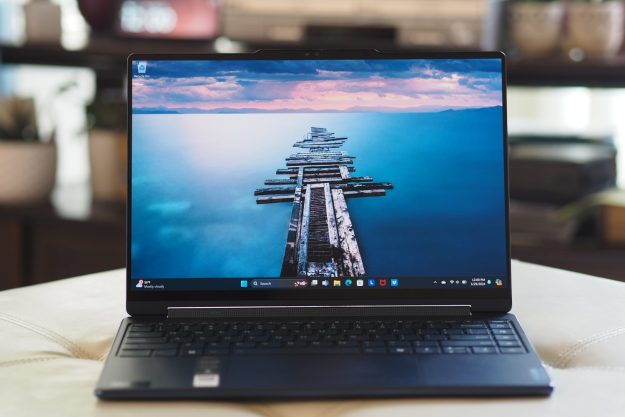
Lenovo Yoga 9i Gen 9
MSRP $1,589.00
Pros
Exquisite aesthetic Solid build quality Excellent productivity performance Comfortable and precise keyboard Great OLED display and audioCons
Poor battery life Expensive for the specsLaptops costing $1,000 or less have gotten seriously good. And when it comes to the basics, those midrange laptops have all your bases covered.
But as I pulled the convertible 2-in-1 Lenovo Yoga 9i Gen 9 out of its box and started setting it up, I was reminded of why a premium laptop like this is so worth the extra cash.
Between the thinness, high-end materials, and general attention to detail, the Yoga looks and feels spectacular. It’s also fast and sports a spectacular OLED display. The mediocre battery life is the only thing holding back the Yoga 9i Gen 9.
Specs and configurations
| Lenovo Yoga 9i Gen 9 | |
| Dimensions | 12.40 inches x 8.58 inches x 0.6-0.64 inches |
| Weight | 2.98 pounds |
| Processor | Intel Core Ultra 7 155H |
| Graphics | Intel Arc graphics |
| RAM | 16GB 32GB |
| Display | 14.0-inch 16:10 2.8K (2880 x 1800) OLED touch, 120Hz 14.0-inch 16:10 4K+ (3840 x 2400) OLED touch, 60Hz |
| Storage | 512GB SSD 1TB SSD |
| Touch | Optional |
| Ports | 2 x USB-C with Thunderbolt 4 1 x USB-C 4 1 x USB-A 3.2 Gen 2 1 x 3.5mm audio jack |
| Wireless | Wi-Fi 6E and Bluetooth 5.1 |
| Webcam | 5MP 2.5K with infrared camera for Windows 11 Hello |
| Operating system | Windows 11 |
| Battery | 75 watt-hours |
| Price |
$1,589 |
Lenovo hasn’t published all the available configurations for the Yoga 9i Gen 9. The 2-in-1 starts at $1,477 with an Intel Core Ultra 7 155H chipset, 16GB of RAM, a 512GB SSD, and a 14.0-inch 2.8K OLED display. It costs $1,589 with a 1TB SSD and a 4K+ OLED panel. My review unit is priced at $1,509 with a 1TB SSD and a 2.8K display.
Those are premium 2-in-1 prices but not overly expensive, given the build quality and performance. The Lenovo Slim 7i Gen 9 is less expensive at $1,116 with 32GB of RAM and a 1TB SSD, but the OLED display is a lower resolution at 1920 x 1200. The HP Spectre x360 14 is also a convertible 2-in-1 with a similar display, and it starts at $1,450 (currently $1,150 on sale) with a Core Ultra 5. With a Core Ultra 7, the HP costs $1,550 ($1,250 on sale).
Design
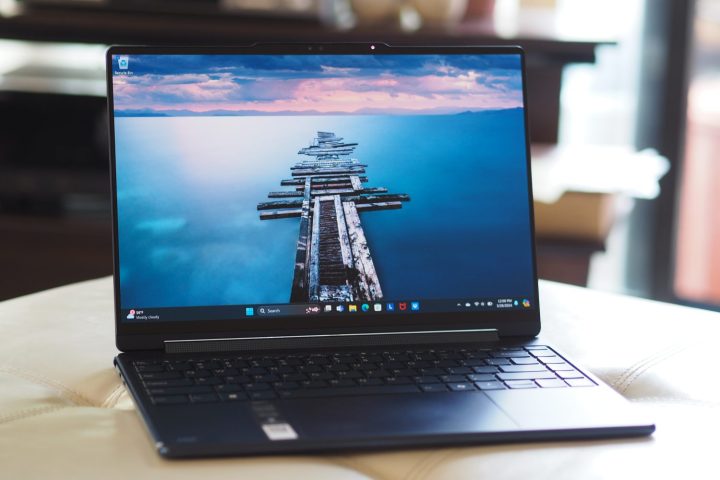 Mark Coppock / Digital Trends
Mark Coppock / Digital TrendsAs I hinted in the introduction, the Yoga 9i Gen 9 makes a very good first impression. Like other exquisitely designed laptops, including the Apple MacBook Air, HP Spectre x360 14, and the earlier Gen 8 version, the Yoga feels cohesive — every element makes sense and serves a purpose. The chassis edges are rounded and feel nicely cool to the touch while exuding a purple hue in the right lighting.
My review unit’s color scheme is Cosmic Blue, and astronomical allusion aside, it exudes elegance, and the slightly darker keyboard makes it easier to see without breaking up the aesthetic. The Spectre x360 14 also has an off-color keyboard that slightly detracts from rather than enhances that 2-in-1’s elegance.
 Mark Coppock / Digital Trends
Mark Coppock / Digital TrendsSimply put, the Yoga is a very attractive laptop. It’s also thoroughly modern without compromising functionality. The top and side display bezels are very thin, with the webcam and microphones housed in a reverse notch at the top.
That’s the opposite approach from the one Apple took with the MacBook’s display notch, and not only does Lenovo’s solution avoid impacting the user interface, it also provides a lip that makes opening the lid a lot easier. The bottom display chin is larger, but that’s to house the hinge and soundbar, where two of the laptop’s four speakers are located (more on those later).
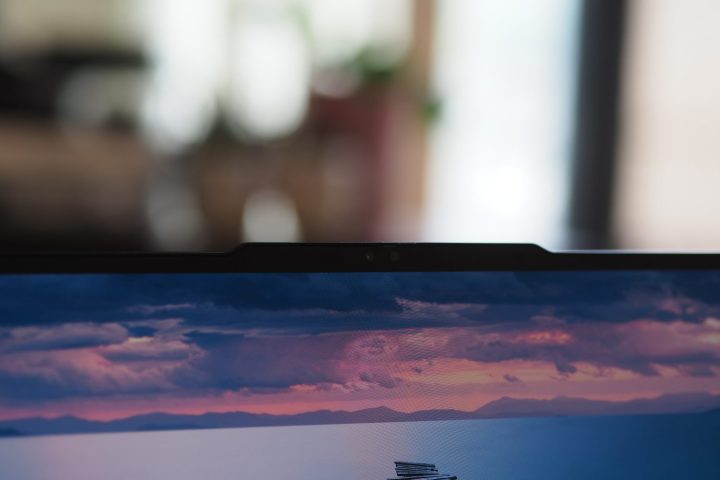 Mark Coppock / Digital Trends
Mark Coppock / Digital TrendsThe all-aluminum Yoga 9i Gen 9 is also incredibly well-built. The keyboard deck and chassis bottom are rigid, and while the lid does give in to firm pressure, it’s still less bendable than the MacBook Air’s. The Dell XPS 14 is more solid overall, but the Yoga still gives off a decidedly premium feel.
The hinge is rather stiff, much more so than the MacBook Air’s and the XPS 14’s excellent dual-clutch version, but the Yoga is a convertible 2-in-1. The hinge successfully keeps things sturdy in clamshell, tent, and media modes. And once you flip it all the way around to tablet mode, the hinge disappears. Convertible 2-in-1s are always a little chunky as tablets, but the Yoga works well with the included active pen.
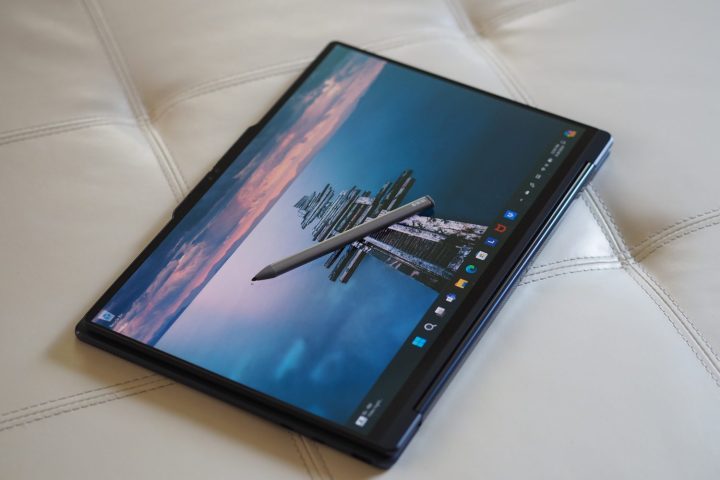 Mark Coppock / Digital Trends
Mark Coppock / Digital TrendsThe Yoga 9i Gen 9 is a reasonably thin 14-inch laptop at a maximum of 0.64 inches, which is slightly thinner than the Spectre x360 14’s 0.67 inches. It’s also a bit lighter at 2.98 pounds versus 3.19 pounds. The two laptops are, therefore, very close in size, but the Yoga somehow feels smaller to me.
The clamshell MacBook Air is much thinner at 0.44 inches and lighter at 2.7 pounds, while the XPS 14 is the thickest (0.71 inches) and heaviest (3.7 pounds). The latter can be configured with a discrete GPU, which needs more room to move air around.
Keyboard and touchpad
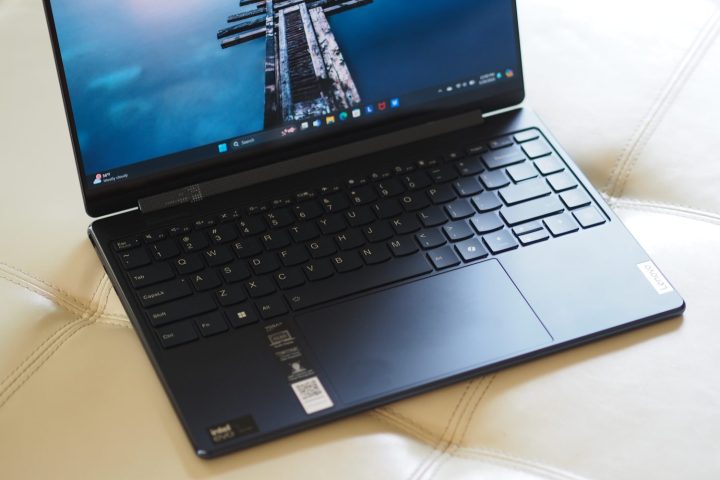 Mark Coppock / Digital Trends
Mark Coppock / Digital TrendsI enjoyed the Yoga’s keyboard quite a bit. It has the lineup’s usual sculpted keycaps, and the keyboard runs almost edge-to-edge, giving it plenty of spacing. The switches were light and snappy, with a comfortable bottoming action. I still like the MacBook’s Magic Keyboard more, but I found the Yoga’s perfectly comfortable while typing this review.
The mechanical touchpad was spacious enough and had confident button clicks that were slightly too loud. I would much rather see a haptic touchpad on a premium laptop, such as the excellent version on the ThinkPad Z13 Gen 2. I’m seeing more haptic touchpads on Windows laptops, and it’s a welcome trend that’s missing here.
Ports and webcam
The Yoga 9i Gen 9 has good connectivity for a 14-inch 2-in-1. It has three USB-C ports, two of which support Thunderbolt 4 and each can power the laptop. There’s also a USB-A port for legacy connectivity and a 3.5 mm audio jack. The Yoga also has a microSD card that the Spectre x360 14 lacks, which gives it a leg up. It’s less convenient than a full-size SD card reader, but better than nothing. Wireless connectivity is complete except for the bleeding-edge Wi-Fi 7.
The webcam is a high-resolution 5MP version supporting 2.5K video, and an infrared camera supports Windows 11 Hello facial recognition. The Yoga 9i Gen 9 includes Lenovo’s user-sensing technology, which can put the laptop to sleep and lock it when the user steps away, then wake it back up and log back in when the user returns.
Performance
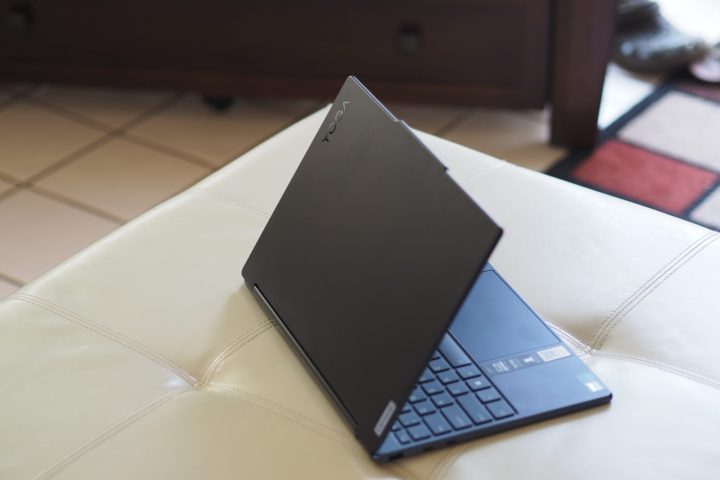 Mark Coppock / Digital Trends
Mark Coppock / Digital TrendsUnsurprisingly, the Yoga 9i Gen 9 is powered by Intel’s 28-watt Core Ultra 7 155H. This ubiquitous chipset is a member of the Meteor Lake series, and it utilizes additional Low Power Efficient cores to enhance efficiency. The 16-core (six Performance, eight Efficient, two Low Power Efficient), 22-thread chipset has provided solid productivity performance. It also features a Neural Processing Unit (NPU) for on-device AI, but that’s limited to just a few tasks like powering Microsoft’s Studio Effects in videoconferencing.
The Yoga 9i Gen 9 remained relatively cool and quiet even during intensive benchmarking. The fans spun up, but they were only a loud whisper, and the bottom of the chassis was warm but never too hot for comfort.
Its performance was competitive with other laptops with the same chipset while rivaling the 45-watt Core i7-13700H. The Yoga 9i Gen 9 is also considerably faster than the previous generation, which ran with Intel’s 13th-gen 28-watt chip. Especially in performance mode, the Yoga 9i Gen 9 is a fast laptop for productivity users.
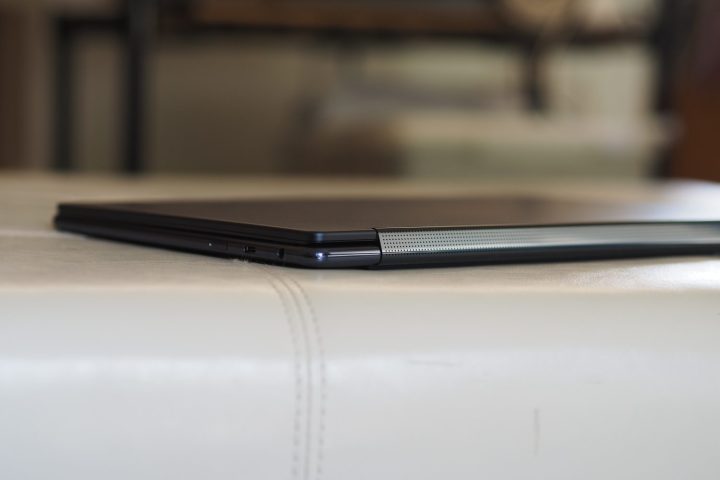 Mark Coppock / Digital Trends
Mark Coppock / Digital TrendsThe integrated Intel Arc graphics fall between the older Intel Iris X3 graphics and an entry-level discrete GPU like the Nvidia GeForce RTX 4050. That limits the Yoga’s performance in gaming and in creative apps that can utilize the GPU.
In the PugetBench Premiere Pro benchmark, the Yoga scored 2,329 in performance mode. That’s faster than the Asus Zenbook 14 OLED with the same chipset, which scored 2,026, and it’s thanks to the Yoga’s slightly faster GPU performance. But, the HP Spectre x360 16 with the same chipset and an RTX 4050 scored 3,552. The MacBook Air M3 scored 3,633, demonstrating the M3’s encode and decode optimizations.
| Geekbench 5 (single/multi) |
Handbrake (seconds) |
Cinebench R23 (single/multi) |
PCMark 10 Complete |
|
| Lenovo Yoga 9i Gen 9 (Core Ultra 7 155H) |
Bal: 1,764 / 10,493 Perf: 1,768 / 11,870 |
Bal: 103 Perf: 85 |
Bal: 1,802 / 10,576 Perf: 1,792 / 12,558 |
6,640 |
| HP Spectre x360 14 (Core Ultra 7 155H) |
Bal: 1,696 / 9,502 Perf: 1,703 / 12,256 |
Bal: 111 Perf: N/A |
Bal: 1,750 / 9,832 Perf: N/A |
6,316 |
| Lenovo Slim 7i Gen 9 (Core Ultra 7 155H) |
Bal: 1,739 / 11,870 Perf: 1,721 / 11,818 |
Bal: 111 Perf: 78 |
Bal: 1,764 / 11,517 Perf: 1,808 / 13,647 |
6,658 |
| Asus Zenbook 14 OLED 2024 (Core Ultra 7 155H) |
Bal: 1,696 / 9,502 Perf: 1,703 / 12,246 |
Bal: 145 Perf: 88 |
Bal: 1,653 / 9,156 Perf: 1,635 / 12,130 |
6,316 |
| Lenovo Yoga 9i Gen 8 (Core i7-1360P) | Bal: 1,843 / 8,814 Perf: 1,835 / 10,008 |
Bal: 122 Perf: 101 |
Bal: 1,846 / 8,779 Perf: 1,906 / 9,849 | 6,102 |
| Asus Zenbook 14X OLED (Core i7-13700H) | Bal: 1,848 / 11,157 Perf: 1,852 / 11,160 |
Bal: 84 Perf: 82 |
Bal: 1,819 / 11,066 Perf: 1,826 / 12,795 | 6,020 |
| HP Pavilion Plus 14 2023 (Ryzen 7 7840U) |
Bal: 1,819 / 9,655 Perf: N/A |
Bal: 84 Perf: N/A |
Bal: 1,721 / 12,234 Perf: N/A |
6,804 |
| Apple MacBook Air (M2) |
Bal: 1,925 / 8,973 Perf: N/A |
Bal: 151 Perf: N/A |
Bal: 1,600 / 7,938 Perf: N/A |
N/A |
While Meteor Lake promises greater efficiency, that hasn’t always been the case in my reviews. The Yoga 9i Gen 9 has a large 75-watt-hour battery and a high-res 2.8K OLED display, and its battery life was less than impressive.
In both our web-browsing and video-looping tests, the Yoga was well below average, even compared to other Meteor Lake laptops with similar displays that were also below average. Two notable exceptions are the Dell Inspiron 14 Plus with its 2.2K IPS panel and the Asus Zenbook 14 Q425 with its FHD+ OLED display. The Lenovo Slim 7i Gen 9 also has a 2.8K OLED display and was equally poor, while the MacBook Air is the longest-lasting by a fair margin.
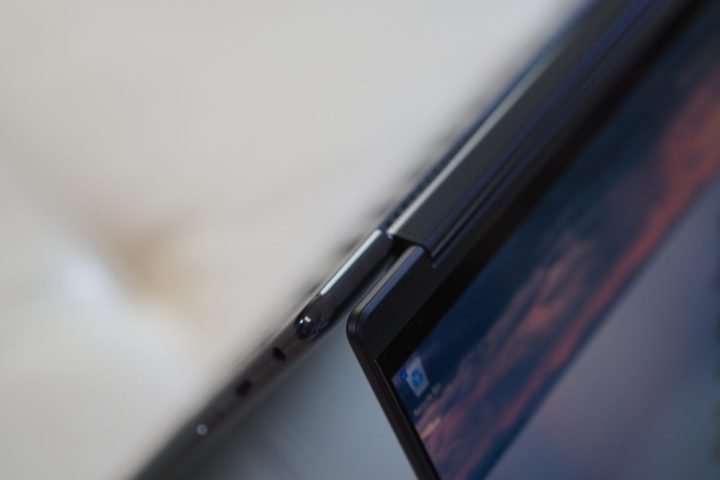 Mark Coppock / Digital Trends
Mark Coppock / Digital TrendsWith a typical workflow, the Yoga won’t last much past lunchtime, which is a step back from the previous generation. Hopefully, Lenovo can improve battery life with a firmware update.
| Web browsing | Video | |
| Lenovo Yoga 9i Gen 9 (Core Ultra 7 155H) |
5 hours, 54 minutes | 8 hours, 21 minutes |
| HP Spectre x360 14 (Core Ultra 7 155H) |
8 hours, 6 minutes | 13 hours, 3 minutes |
| Dell Inspiron 14 Plus 2024 (Core Ultra 7 155H) |
10 hours, 24 minutes | 14 hours, 30 minutes |
| Asus Zenbook 14 Q425 (Core Ultra 7 155H) |
12 hours, 25 minutes | 18 hours, 1 minute |
| Lenovo Slim 7i Gen 9 (Core Ultra 7 155H) |
6 hours, 7 minutes | 6 hours, 21 minutes |
| Asus Zenbook 14 OLED 2024 (Core Ultra 7 155H) |
7 hours, 9 minutes | 14 hours, 22 minutes |
| Asus Zenbook 14 OLED 2023 (Ryzen 5 7530U) |
12 hours, 13 minutes | 17 hours, 19 minutes |
| Lenovo Yoga 9i Gen 8 (Core i7-1360P) |
7 hours, 41 minutes | 13 hours, 25 minutes |
| Apple MacBook Air (Apple M3) |
19 hours, 38 minutes | N/A |
Display and audio
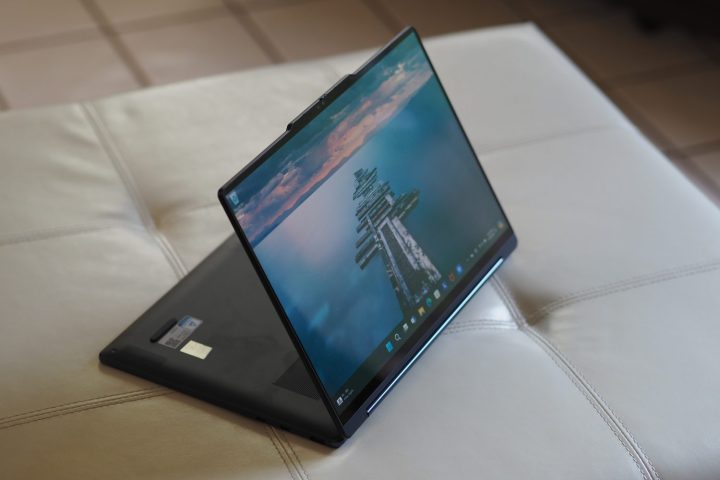 Mark Coppock / Digital Trends
Mark Coppock / Digital TrendsI reviewed the Yoga 9i Gen 9’s 2.8K (2880 x 1600) OLED display, which runs up to 120Hz. It was drop-dead gorgeous out of the box, with bright and dynamic color, inky blacks, and excellent sharpness. There’s a 4K+ (3840 x 2400) OLED display option, but that panel runs at just 60Hz. I’ve become accustomed to faster refresh rates, which makes a noticeable difference in how smoothly Windows runs.
According to my colorimeter, the display is as good as any other OLED display I’ve tested. Blacks were perfect thanks to near-infinite contrast. Its colors were wide at 100% sRGB, 97% AdobeRGB, and 100% DCI-P3, with excellent accuracy at a DeltaE of 0.83 (1.0 or less is indistinguishable to the human eye). Brightness was also great at 400 nits.
The display also supports Dolby Vision, which provides a quality image in high dynamic range (HDR) content. Only the MacBook Pro 14’s mini-LED display is better.
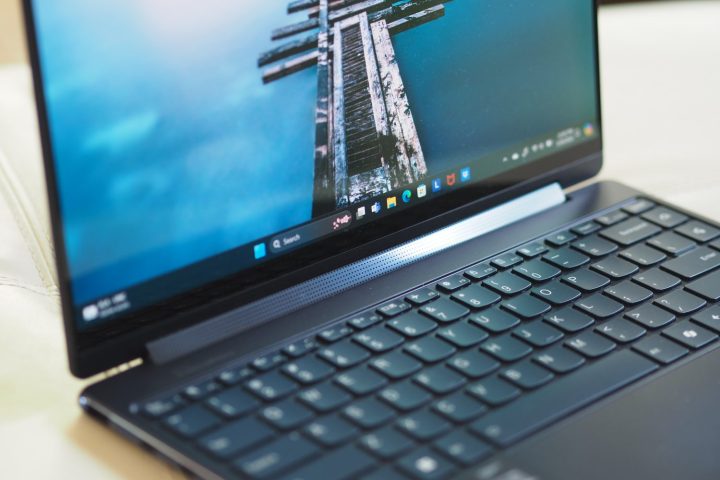 Mark Coppock / Digital Trends
Mark Coppock / Digital TrendsThe Yoga 9i Gen 9 has the company’s Soundbar, which houses two tweeters and provides clear sound in the 2-in-1’s four modes. It has two side-firing woofers, making for a very good four-speaker configuration. I tested a variety of audio content, including a Netflix movie, a YouTube trailer, and several music tracks, and the setup produced tons of volume, with clear mids and highs and more bass than most 14-inch Windows laptops. I noticed slight distortion at full volume, which was very loud, but that went away when I turned it down to 95%.
The MacBook Air might be the Yoga’s equal here, but no other Windows laptop I’ve tested so far is as good.
Taken together, the display and sound system make for an excellent media machine. Productivity users will appreciate the jet-black text on clear white backgrounds, and creators will love the colors.
An outstanding convertible 2-in-1 with one significant flaw
I like the Yoga 9i Gen 9. A lot. It’s a gorgeous convertible 2-in-1 that’s very well made, and its OLED display and excellent audio make for a fun media experience. It’s also quite fast and reasonably portable. Its one significant flaw is below-average battery life.
It also costs around $1,500, 50% more expensive than some other laptops with similar specs. Is a 2-in-1’s flexibility and a stunningly attractive chassis more important to you than all-day battery life? If so, then, by all means, buy the Yoga because only its battery life holds it back from a higher rating.

 FrankLin
FrankLin 